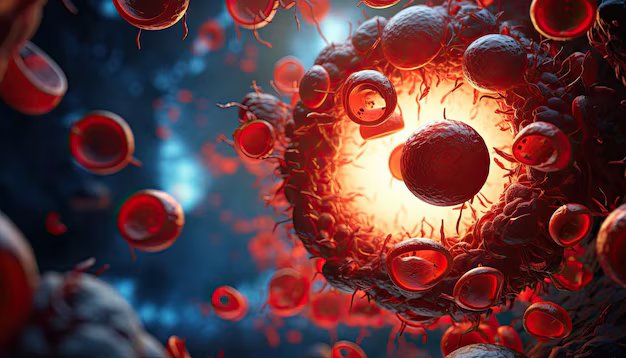IASO Bio Gains NMPA Approval for Multiple Myeloma Treatment IND
01 April 2024 | Monday | News

Image Source : Public Domain
IASO Bio, a biopharmaceutical company engaged in discovering, developing, manufacturing and marketing innovative cell therapies and antibody products, announced that China National Medical Products Administration (NMPA) has approved the Investigational New Drug (IND) application for Equecabtagene Autoleucel (IASO Bio R&D code: CT103A), a self-developed fully-human anti-B cell maturation antigen (BCMA) chimeric antigen receptor (CAR) autologous T-cell injection, for an expanded indication in treating relapsed and/or refractory multiple myeloma (R/RMM) patients who have undergone 1-2 lines of prior therapies and are refractory to lenalidomide.
The New Drug Application (NDA) for FUCASO ® (Equecabtagene Autoleucel) was approved by NMPA for the treatment of relapsed and/or refractory multiple myeloma (R/R MM) who received ≥3 lines of prior therapies containing at least one proteasome inhibitor and an immunomodulatory agent on June 30, 2023. The NDA approval was based on the data from the pivotal FUMANBA-1 study (CTR20192510, NCT05066646) conducted at multiple sites in China. According to the updated long-term follow-up data of the study published at the 2023 International Myeloma Society (IMS) Annual Meeting, as of December 31, 2022, among the 103 efficacy-evaluable patients, the overall response rate (ORR) was 96.1%, and the stringent complete response/complete response (sCR/CR) rate was 77.7%; in 91 participants without prior CAR-T therapy, ORR was 98.9%, 82.4% of patients reaching sCR/CR, and the 12-month progression-free survival (PFS) rate was 85.5%; 94.2% (97/103) of patients achieved minimal residual disease (MRD) negativity, and all sCR/CR patients achieved MRD negativity. Among the 105 participants, only one experienced ≥ Grade 3 cytokine release syndrome (CRS), with no ≥ Grade 3 immune effector cell-associated neurotoxicity syndrome (ICANS). Pharmacokinetics indicated that Equecabtagene Autoleucel persisted in vivo, with gene copy numbers detectable in 40% of participants at 24 months after infusion.
Most Read
- Innovations In Magnetic Resonance Imaging Introduced By United Imaging
- Management of Relapsed/Refractory Multiple Myeloma
- 2025 Drug Approvals, Decoded: What Every Biopharma Leader Needs to Know
- BioPharma Manufacturing Resilience: Lessons From Capacity Expansion and Supply Chain Resets from 2025
- APAC Biopharma Review 2025: Innovation, Investment, and Influence on the Global Stage
- Top 25 Biotech Innovations Redefining Health And Planet In 2025
- How Health Systems Are Reshaping Drug Adoption, Partner Models, and Market Access in 2026
- The New AI Gold Rush: Western Pharma’s Billion-Dollar Bet on Chinese Biotech
- Single-Use Systems Are Rewiring Biopharma Manufacturing
- The State of Biotech and Life Science Jobs in Asia Pacific – 2025
- Asia-Pacific Leads the Charge: Latest Global BioSupplier Technologies of 2025
- Invisible Threats, Visible Risks: How the Nitrosamine Crisis Reshaped Asia’s Pharmaceutical Quality Landscape
Bio Jobs
- Sanofi Turns The Page As Belén Garijo Steps In And Paul Hudson Steps Out
- Global Survey Reveals Nearly 40% of Employees Facing Fertility Challenges Consider Leaving Their Jobs
- BioMed X and AbbVie Begin Global Search for Bold Neuroscience Talent To Decode the Biology of Anhedonia
- Thermo Fisher Expands Bengaluru R&D Centre to Advance Antibody Innovation and Strengthen India’s Life Sciences Ecosystem
- Accord Plasma (Intas Group) Acquires Prothya Biosolutions to Expand Global Plasma Capabilities
- ACG Announces $200 Million Investment to Establish First U.S. Capsule Manufacturing Facility in Atlanta
- AstraZeneca Invests $4.5 Billion to Build Advanced Manufacturing Facility in Virginia, Expanding U.S. Medicine Production
News











